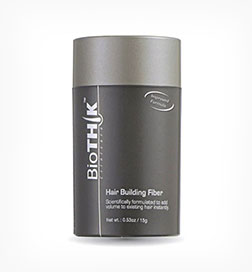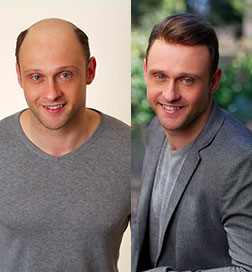Polycystic Ovarian Syndrome, or PCOS, is a hormonal disorder that is very common amongst women. The name relates to the fact that most women suffering from PCOS have enlarged ovaries with small cysts on the outer edge. Other symptoms include unusually long menstrual cycles, acne, obesity and abnormal hair growth. The syndrome is also linked with hair loss in some women. While the cause is not fully understood, early diagnosis of PCOS can reduce the risk of ongoing health problems. If you believe that you or someone you know is suffering from PCOS, take a look at the information below.
While the root cause is unknown, it seems that several factors play a role in the development of the syndrome. Factors such as excessive insulin, low-grade inflammation, genetic predisposition and abnormal foetal development may all be involved in the development of PCOS. The body primarily receives energy through insulin, a hormone which the pancreas produces. Women suffering from PCOS may not use insulin as efficiently as other women, resulting in an overproduction of the hormone. This increases androgen production in the ovaries.
Research has shown that PCOS sufferers have low-level inflammation. Inflammation occurs when white blood cells produce substances to fight infections. Following inflammation, blood cells produce substances leading to the resistance of insulin and accumulation of cholesterol. Current research also suggests some hereditary link with PCOS. If you have a family history of the syndrome, you are more likely to develop it yourself. Other research suggests that exposure to male hormones (androgens) during foetal development may have an impact on gene expression. This exposure can result in abnormal fat distribution, increased insulin resistance and low-grade inflammation.
Many women experience hair loss as one result of PCOS. If you suffer from the syndrome and are experiencing hair loss or thinning, you are probably going through a variety of different emotions. Hair loss can have a huge negative effect on a woman's wellbeing, both emotional and psychological. If you are noticing hair loss or hair thinning, think about going to see a hair loss consultant. You'll be amazed at the number of options available for women in your position. Hair thinning caused by PCOS commonly looks a lot like hair loss experienced due to Androgenic (or Androgenetic) Alopecia (where the hair thins on the crown of the scalp, and sometimes also on the sides of the head). Popular solutions for this kind of hair loss include our ReAllusions Crown Extensions (Topette). Take a look at the dramatic difference that a Topette can make to your thinning hair. You will love the result!
If your hair loss is substantial and spreads all over the scalp, a wig might be a better option for you. It is important to research the options available to you in the world of wigs – not all wigs are equal! Wigs range from cheap synthetic fashion wigs to high-quality 100% human hair wigs. Take time to learn the differences and the pros and cons of each option. You may be tempted to pick up a wig online or at the nearest hair accessory store, but you may not be happy with the result. Choosing a wig is an investment of both time and money. It can really help to see a professional who can answer all of your questions.
ToTo chat with a professional and to explore hair loss solutions in a confidential and obligation free environment, book a free consultation here. Alternatively, give us a call on 1300 427 778.
References
http://www.mayoclinic.com/health/polycystic-ovary-syndrome/DS00423
http://www.livestrong.com/article/107668-pcos-hair-loss-treatment/




